According to a British Army press release, the Field Army has finalised a significant strategic relationship agreement with Associated British Ports (ABP), aimed at enhancing the UK’s military sealift capabilities and reducing environmental impact.
The deal, signed by Vice Admiral Andy Kyte, Chief of Defence Logistics and Support, and Henrik L. Pedersen, CEO of ABP, marks a major milestone for British military logistics.
The agreement builds on a long history of military operations through the Sea Mounting Centre (SMC) at Marchwood, a facility that has played a pivotal role in British deployments since its establishment during the Second World War.
In addition to £100 million invested in improving Marchwood’s infrastructure, the agreement now provides the Army with access to ABP’s extensive port network across the UK. This includes assured use of suitable ports, workforce support at agreed rates, and an annual pre-paid allocation with options for additional services.
Henrik L. Pedersen stated, “As part of our strategic commitment to supporting the Defence sector, ABP is proud to provide the MoD access to our network of ports across Britain for both national emergencies and routine business.”
The new arrangement is expected to significantly reduce the environmental impact of military logistics. By enabling units based in northern England and Scotland to utilise nearby ports such as Hull and Immingham, the Army can avoid transporting equipment to Marchwood, saving road mileage and reducing carbon emissions.
Major General Jo Chestnutt, Deputy Chief of Staff of the Field Army, highlighted the strategic importance of this shift, saying, “This new landmark strategic relationship with ABP is the exemplar of what MOD and Industry can achieve. Working together, we have increased access to the full port network across Britain, increasing the resilience and capacity of the MoD’s Sea Mounting capabilities.”
The agreement also strengthens operational resilience by diversifying the ports available for military deployments, reducing reliance on a single location like Marchwood. This mitigates risks associated with single points of failure, an important consideration in the face of today’s geopolitical challenges.
The first major use of this expanded network is expected later this year, with elements of 7 Brigade returning from NATO exercises in Eastern Europe through the port of Hull. This adjustment will shorten sea passages and eliminate long road hauls across the UK,


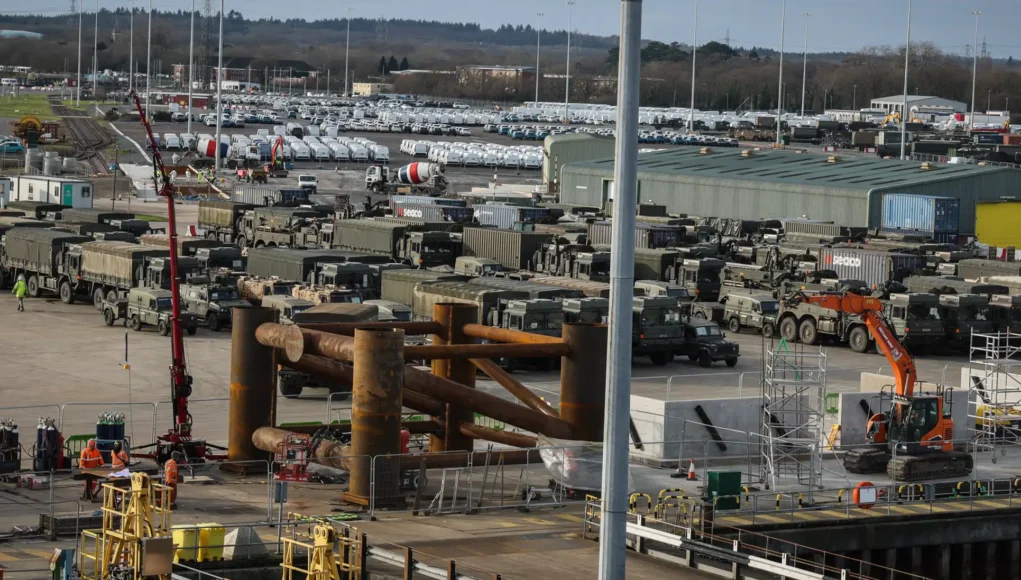


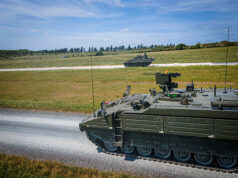

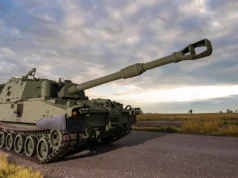


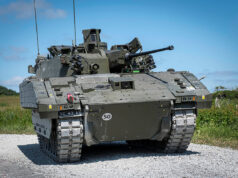

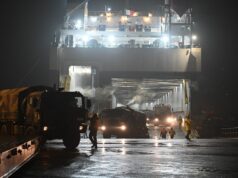

Oh look. The British Army re-learning all those lost lessons from the Cold War.
I suspect if someone bothered to wander into the archives and dig out the “movement” orders for Spearpoint exercises from the 80’s, they would find all the relevant type of info required. Next someone might suggest using Emden as the port of entry into Europe.
Who knows they might even reform 79 Railway Squadron to move all the kit via train through the tunnel.
This isn’t something the army unlearnt. This is a failure to bake military usage into port contracts by successive governments.
Right about the trains and 79 RLC though.
The 2010 cuts of niche enablers like that were idiocy, for a paltry saving.
Yep
Sadly given the uks loading gauge issues, with the withdrawal from Europe there wasn’t much call for railway units.
Only main battle tank are affected 3the loading gauge in the UK.
Successive governments are to blame for this. When British Ports were privatised, they didn’t include the basic access required by the military. No doubt, Clammy Lammy had to cover this when he popped over to Kuwait and Canada last November. They own the big ports now, so he had to ask nicely no doubt.
Yes having someone else own and operate your key logistic infrastructure like ports ( and railways) is quite frankly utterly stupid……
Maybe there is also now some thinking around a little bit more diffusion around core defence related infrastructure and enables..having everything in one place is great for an accountancy end of year bottom line…but really very bad when your “likely” enemy has shown a propensity to lob intermediate range ballistic missiles that you have no realistic way of stopping…other than to have multiple targets and options that they will have to deal with…because an IRBM is a hell of a lot more expensive than a few port buildings and are always going to be limited…so if Russia is not sure which port will be used..firing an IRBM becomes less of a good risk vs benefit balance.
“Field Army” made me chuckle.
Indeed. Could probably ship out the entire field force in an afternoon!
Indeed! With only 5 manoeuvre brigades, ‘Field Corps’ would still be an exaggeration, but at least might be within the realms of possibility one day if we ever get to 3% of GDP.
While in the army I was transported to Germany by many ports Dover to Zeebruge with 36 HAD regt RA 1970 TT, returnvia Europort to Harwich (rfa) Marchwood to Bremahaven RSA Manorbier 1971 return. Liverpool Signals HQ and TA regt NSF Hull Europort return 1982. Then with 210 Sig Sqn Hull to Europort return , Hull to Zeebruge, Europort to Hull, both NSF then Hull to Bremahaven and return via North shields (rfa) and my last BAOR exercise Flying Folcan 88 Hull tp Europort NSF return, so we at one time had docking rights in many UK ports.
The war clouds gather around the world but we won’t be making any carbon emissions in the environment while we annihilate the enemy, low yield fallout maybe, but no carbon, that just wouldn’t be cricket. WTF.
Make peace you imbeciles ❤️☮️